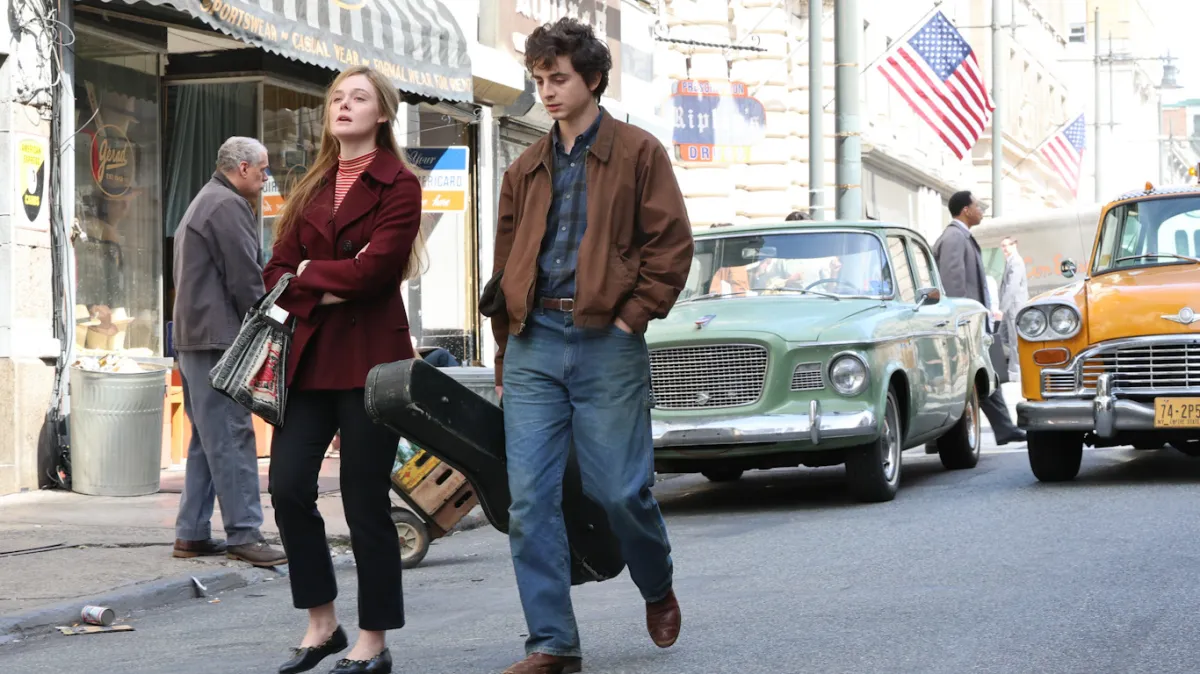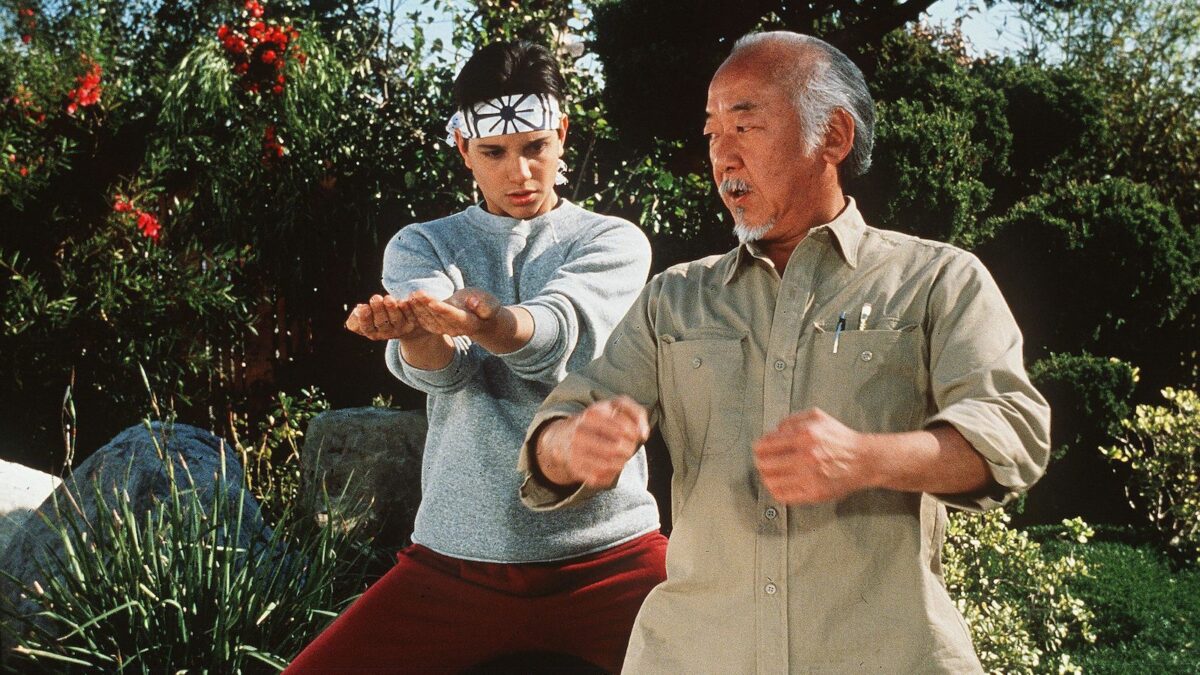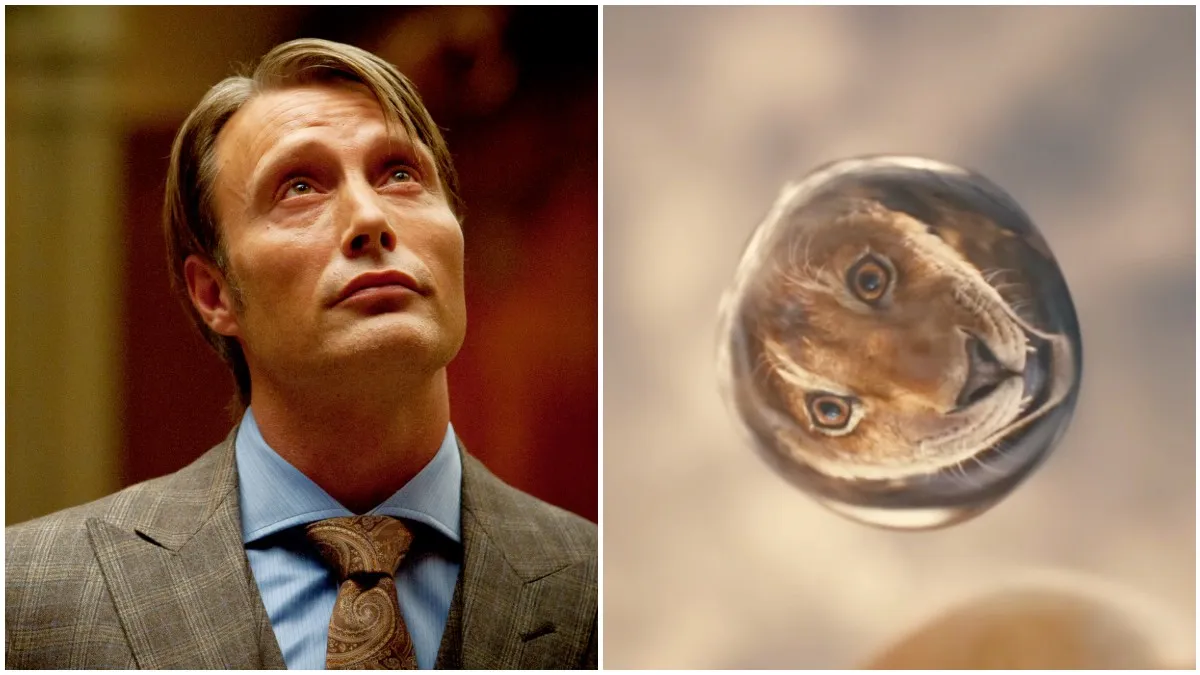David Koepp’s You Should Have Left commits the cinematic sin of embracing boredom with the utmost forgettability. Damned if I’m writing this review at 1:00 AM with droopy eyelids because by morning, I’ll have retained maybe a minute’s worth of Koepp’s unhaunted house snoozer. It’s “Creepy Hallways: The Movie,” except subtract the “Creepy” and have Kevin Bacon’s greatest adversarial face-off be with a staircase. I wish something happened, anything happened, worth retreating into a curled, protective audience position. Instead, a romantic quarrel “intensifies” with supposed “twists” that couldn’t be more unenthusiastic or without tension. To quote a more favorable 2020 film, “Terrifically competent, there’s no excuse for that.”
Except remove “Terrifically” and put another set of question marks around “competent” for emphasis.
Bacon plays sixty-something Theo Conroy, a husband with jealously issues to thirties starlet Susanna (Amanda Seyfried) and father to the innocently adorable Ella (Avery Tiiu Essex). On a whim, Theo suggests his family vacation together before Susanna begins a weeks-long shoot in London. Their travel ends in Wales, where they rent an isolated countryside manor. It’s aesthetically sterilized inside, boasting walls of beige brick and muted decor. The trio should be taking advantage of a bonding opportunity, but nightmares plague everyone under the getaway home’s roof. Susanna imagines herself on-stage without lines, Ella sees an old injured man, and Theo wrestles with the cleared accusations that he killed his previous wife. Oh, and Shadow Man comes calling.
Apologies, because even the line “Shadow Man comes calling” sounds infinitely more dreadful than a few human outlines projected onto walls. Even the most throwaway collection of words paints You Should Have Left with a thicker shade of interest.
From scene-one, Koepp reveals his cards. Ella lays in bed, awakened by sounds of a cane clunking through an adjacent pitch-black room. She leaps out of bed, shuts a door, then jumps back under the covers to find an aged man lying beside her paralyzed body. Within no more than one uttered line, the man announces himself to be Kevin Bacon in senior citizen makeup (mimicking Jackie Earle Haley and maybe trying out for his own Freddy Krueger). It’s so lazily “hidden,” blowing the film’s climactic “gotcha” before the prologue even finishes. “Shadow Man” resides in dreamland, and frequently returns to remind us he is, in fact, Kevin Bacon. Swing and a miss on my generated suspense.
Subplot tangents provide no worthwhile distractions, be it a Welsh general store owner who speaks in “Local Horror Character With Secrets” circles or Susanna’s outed affair. Theo’s world crumbles around him, and yet You Should Have Left is flatter than a jumbo gulper of Baja Blast left on your nightstand from a Taco Bell order placed two Saturdays prior. Whether or not this is supposed to be a reflection on Theo’s overall demeanor, bottling his rage, Koepp ensures a horror film that’s about as horrific as wandering through an empty AirBNB booking during the daytime. These are significant moments that depict dysfunction (decoy phones), mistrust (Theo combing through Susanna’s cell phone, laptop, and table for evidence), and abstract terror. Played on-screen like they’re a sleepytime lullaby as Koepp pushes forward into yet another hum-drum sequence lacking consequences.

Theo’s rented prison comes with “historical value,” not that mythology makes any lasting impact. The house is four(ish) years old, built upon another house’s bones which itself was built upon a tower of cursed souls or something (exposition mumbled and passed-over). Someone named “Stetler” (sure, sounds right) owns the architectural purgatory, which proves itself to be a time-paradoxical maze where both Theo and Ella become lost.
Scenes lapse as Theo plays fly-on-the-wall to earlier interactions (the house shows you what it wants), but atmospheric intrigue never enhances. The house’s deepest reaches, meant to expose a character’s guarded soul, simply dim basement lighting and call it “spooky time.” Koepp’s approach to both storytelling and horror is lackadaisical at best and insultingly mundane at worst. A fundamental genre exercise that shuffles through the motions like it’s being punished or forced into existence.
You Should Have Left is quite the damning nomenclature omen when you put it in context with the film’s quality. Plot devices come and go like dust in the wind (the house’s measurements and angles being illogical but real), as David Koepp’s adaptation of Daniel Kehlmann’s source material never finds its strengths or purpose. It’s cumbersome in its basicness and unforgivably pedestrian when compared to equal shadowplay shriekers. “Notoriety” is something earned through grand, ambitious swings; not well-enough composed shots of corridors that differ in length or play funhouse tricks on minds. Boxes checked, bare minimum achieved, a story told. Too bad Koepp’s “nightmare” will unceremoniously wash away in a sea of countless other cinematic-enough foundational replicas marred by the same dead-on-arrival attitude.






